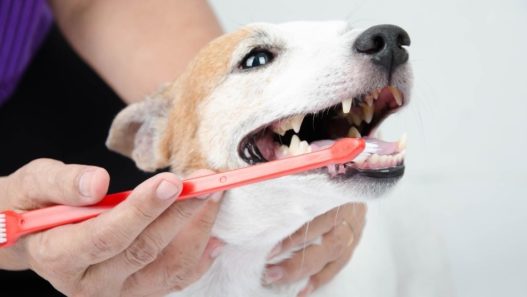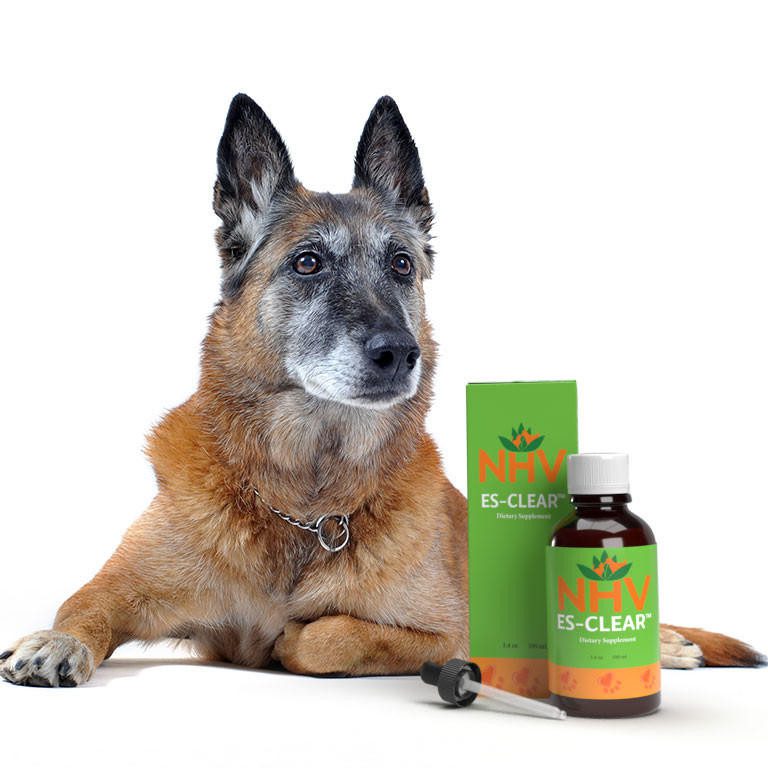

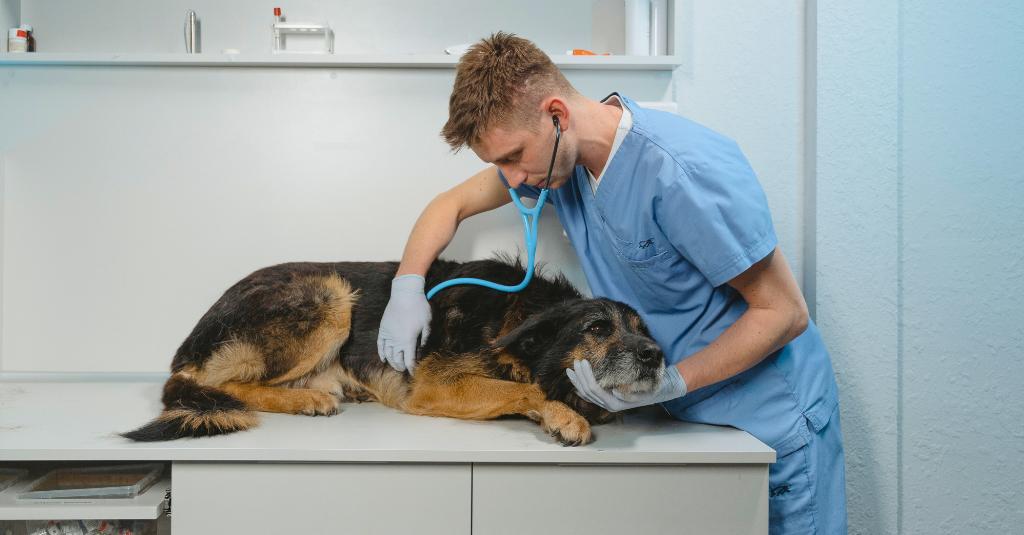
Cancer in dogs and cats has become a significant concern, with more pet parents than ever facing the challenges of a cancer diagnosis. The good news is that awareness, early detection, and treatment options are advancing, giving pets the best chance for a fulfilling life. Here, we explore common types of cancer in pets, signs to watch for, and the options available to support a pet’s health during treatment.
Why Pet Cancer Awareness Matters
Cancer is one of the leading causes of death in dogs and cats, especially in older fur kiddos. Pet parents are often unaware of the early signs of cancer in dogs and cats, so making regular check-ups and knowing what to look for are essential.
Pet parents are often unaware of the early signs of cancer in dogs and cats
With greater awareness, many cancers can be detected in earlier, more treatable stages, giving pets a better chance for recovery and improved quality of life.
Common Types of Cancer in Pets
Several types of cancer commonly affect dogs and cats. While each cancer is unique in its symptoms and progression, understanding these common forms can help pet parents stay vigilant.
- Osteosarcoma, a cancer of the bones, primarily affects larger dog breeds, though it’s rare in cats. Symptoms include pain, swelling, and lameness, usually around the limbs. Early detection is essential, as this cancer has a high potential for spreading to other areas of the body.
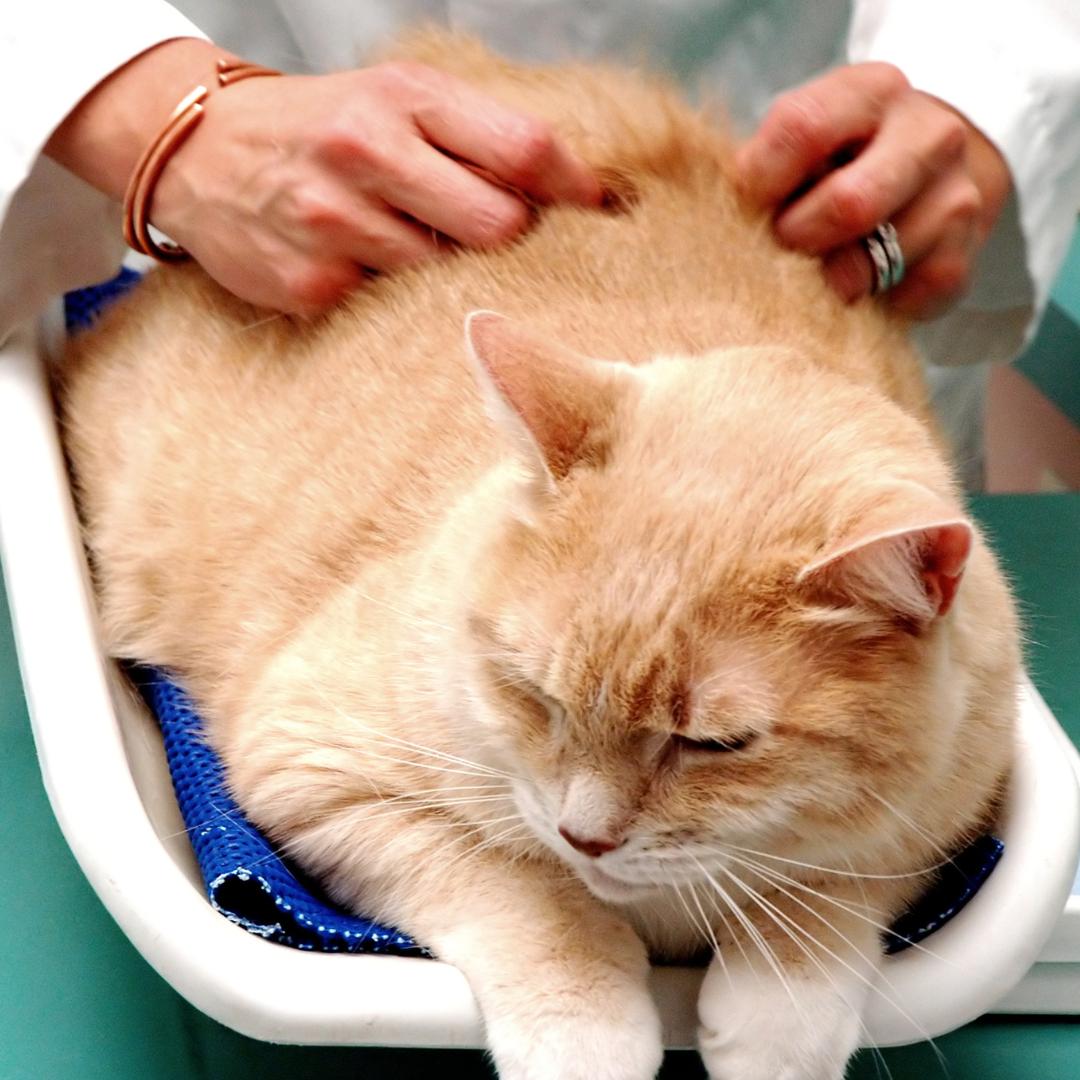
- Lymphoma affects the lymphatic system, which is crucial for the immune system. It’s one of the most prevalent cancers in both dogs and cats and can appear in various forms. Swollen lymph nodes, especially under the jaw or behind the knees, are common indicators of lymphoma. Early diagnosis and intervention are essential as lymphoma can progress rapidly without treatment.
- Mast Cell Tumors are commonly found on the skin of dogs and, to a lesser extent, in cats. They appear as lumps or bumps and vary in size. While some mast cell tumors are benign, others can be aggressive, and a biopsy is often needed to determine the severity.
Signs and Symptoms of Cancer in Dogs and Cats
The symptoms of cancer in dogs and cats can vary, but several signs may indicate an issue that warrants a veterinary visit. Some common symptoms to monitor include:
- Weight Loss: Unexplained weight loss is often one of the first signs. If your pet is losing weight without a change in diet or activity level, it’s worth consulting your veterinarian.
- Lumps and Bumps: Not all lumps are cancerous, but any new or changing bump should be evaluated by a vet. Skin cancer and other types often manifest as lumps that may feel different from other skin tissues.
- Changes in Appetite: Pets with cancer may experience changes in their appetite, often showing periods of increased or decreased interest in food. Some types of cancer affect the gastrointestinal tract, making eating uncomfortable, while others lead to a general loss of interest in food.
- Unusual Behavior: Behavioral changes, like increased lethargy or irritability, could indicate discomfort or illness. Pets often try to conceal pain, so even slight changes in their activity level or personality should be regarded seriously.
Diagnostic Tests for Pet Cancer in Dogs and Cats
If cancer is suspected, your veterinarian may recommend several diagnostic tests. Early detection is crucial, as it can make a significant difference in the treatment plan and overall prognosis.
- Biopsies: A biopsy involves taking a small tissue sample from a lump or area of concern and examining it under a microscope. It is one of the most reliable ways to determine whether a tumor is malignant or benign.
- Blood Test: Blood tests can reveal abnormalities that may suggest cancer, such as elevated white blood cells or organ function issues.
- Imaging (X-rays, Ultrasound, MRI): Imaging techniques help locate cancer, determine its size, and assess if it has spread. For example, X-rays are often used for bone cancer diagnosis, while ultrasound can be effective in visualizing abdominal masses.
Treatment Options Available for Cancer in Dogs and Cats
Treatment for cancer in dogs and cats varies based on the type and stage of cancer, the pet’s overall health, and other factors. Here’s a look at some of the most common treatment methods:
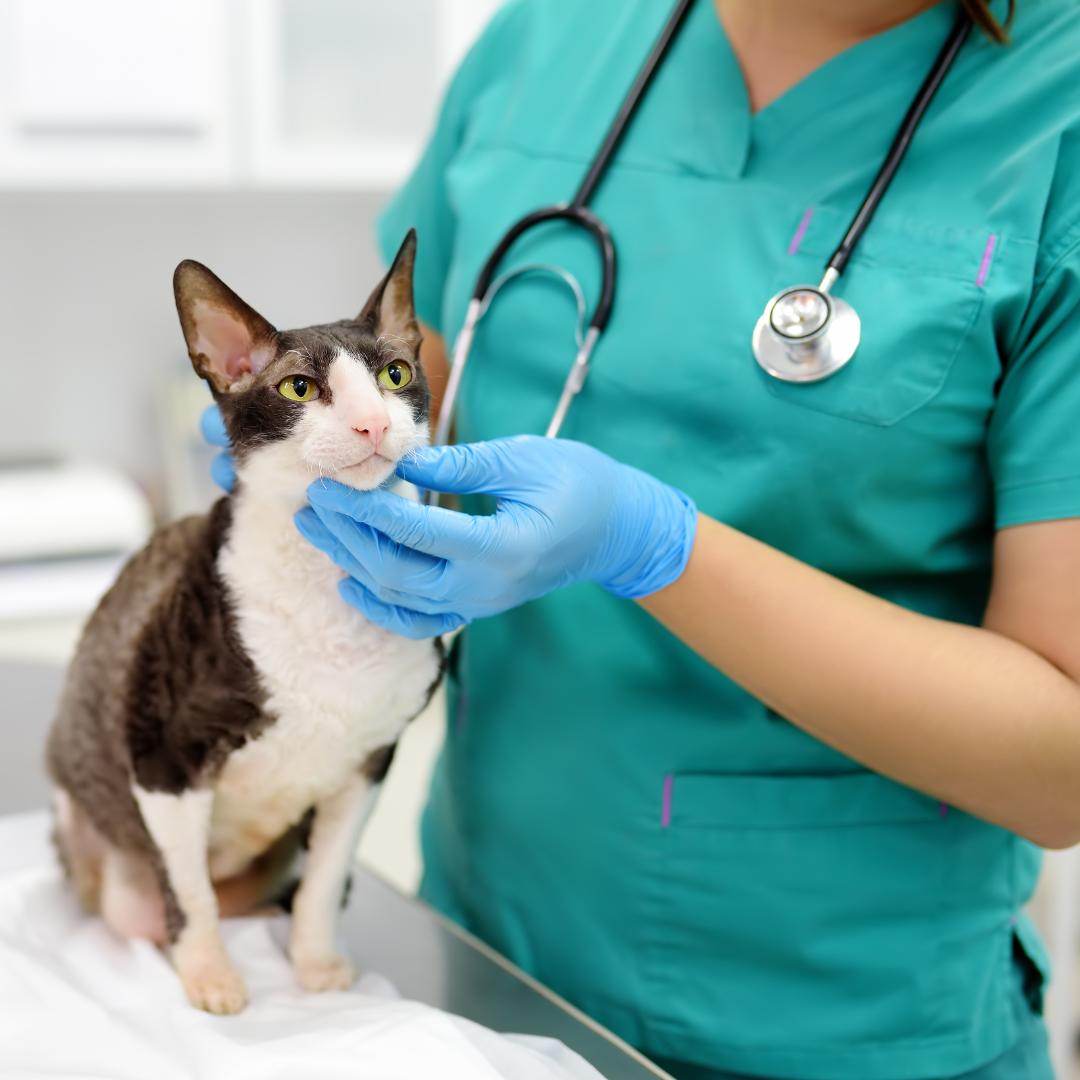
- Surgery: For localized cancers, surgery is often the first choice. Removing a tumor can be effective, especially if cancer has not spread.
- Chemotherapy: Chemotherapy is commonly used for cancers like lymphoma and leukemia
- Holistic Approaches: Many pet parents turn to holistic and complementary therapies to support their pets’ quality of life and overall health. Options like herbal supplements and dietary adjustments may be recommended to manage symptoms and support the immune system.
Supporting Your Pet’s Health with NHV Supplements
NHV Natural Pet Products offers a range of supplements designed to support pets’ overall health, especially during cancer treatment. Here are a few that can help:
- ES Clear: Formulated to support the immune system, ease discomfort, and reduce inflammation. It helps support healthy cells and can improve energy levels, appetite, and comfort.
- BK Detox: This supplement is especially useful for supporting pets fighting cancer. When combined with ES Clear, it can offer added cancer support. BK Detox helps detoxify the vital organs and the blood, and it is a good aid when the pet is on chemotherapy.
- Natures Immuno: This supplement is a blend of medicinal mushrooms with cancer-fighting properties and may enhance the effects of chemotherapy while protecting the immune system.
- Milk Thistle: Milk Thistle supports liver function, which is especially beneficial if your pet is undergoing chemotherapy. A healthy liver is crucial for detoxification and maintaining overall health.
The Role of Pet Parents in Cancer Care
As a pet owner, you play a vital role in your pet’s cancer care journey. Here are some ways you can support them:
- Stay informed and involved: Learning about your pet’s specific diagnosis, treatment options, and prognosis empowers you to make informed decisions. Your veterinarian can be an invaluable resource, so don’t hesitate to ask questions.
- Maintain a positive environment: Pets are sensitive to our emotions, so creating a calm and loving environment can help them feel more secure. Soft bedding, gentle handling, and spending time together can provide comfort and boost your fur kiddo’s mood.
- Provide proper nutrition: Cancer and its treatments can affect a pet’s appetite, making it important to ensure they’re getting the nutrients they need. Consult with your vet on a balanced diet that may help support their strength and energy.
- Observe and record changes: Monitor any new symptoms, changes in behavior, or responses to treatments. This information can help your veterinarian adjust the treatment plan to suit your pet’s needs.
Final Thoughts
Cancer in dogs and cats is a serious diagnosis, but with early detection, comprehensive care, and the right support, many pets can continue to live happy, comfortable lives. Remember, you’re not alone, your veterinary team and supportive products like NHV supplements are here to help you every step of the way. By staying informed, monitoring your pet closely, and providing a nurturing environment, you can make a positive difference in their journey.

ES Clear for Pet Vitality
ES Clear -Helps support your pets immune system and over all wellbeing
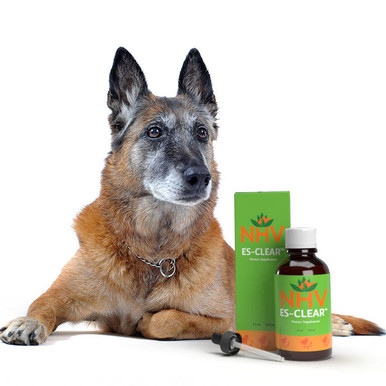
ES Clear -Helps support your pets immune system and over all wellbeing
- item number
- ph1600fb
- weight
- 0.7
-
Description
- item number
- ph1600fb
- weight
- 0.7
-
Ingredients
-
Dosage
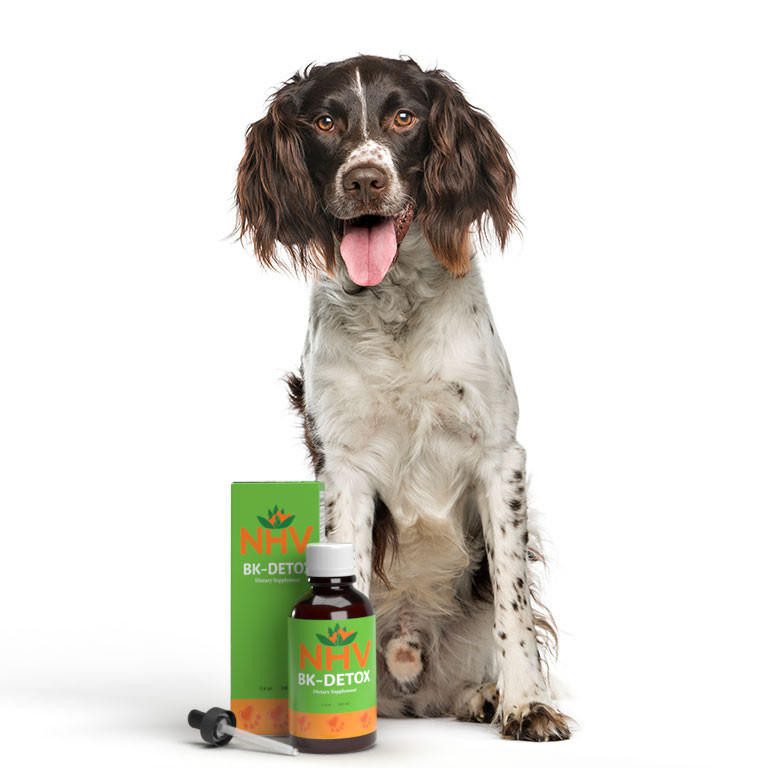
BK Detox for Pets with Compromised Immune Systems
BK Detox - Natural support for dogs with compromised immune system.
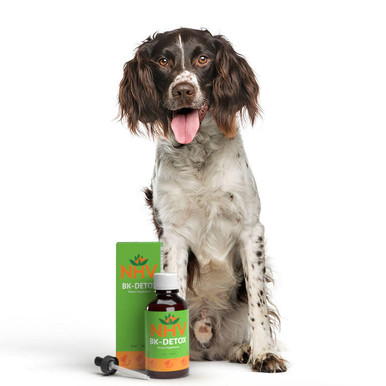
BK Detox - Natural support for dogs with compromised immune system.
- item number
- ph7800-fb
- weight
- 0.7
-
Description
- item number
- ph7800-fb
- weight
- 0.7
-
Ingredients
-
Dosage
cancer support

Cancer Fighter Pack (Cancer Kit 4)
Cancer Fighter Pack (Cancer Kit 4)
PetOmega 3, Milk Thistle, ES-Clear, Turmeric
bundle and save with pet expert kits
3 month supply for a small to medium size pet.
What is it?
A full range of natural veterinarian-formulated herbal remedies designed to help your cat or dog manage the symptoms of cancer, boost immune function, improve energy, help scavenge free radicals. Use these supplements for cat and dog cancer care to improve their quality of life.
How Does it Work?
- Supports detoxification and liver health
- Strengthens the immune system
- Reduces inflammation and oxidative stress
- Promotes healthy skin, coat, and appetite
Why Should I Trust It?
Veterinarian-formulated and approved.


What is it?
A full range of natural veterinarian-formulated herbal remedies designed to help your cat or dog manage the symptoms of cancer, boost immune function, improve energy, help scavenge free radicals. Use these supplements for cat and dog cancer care to improve their quality of life.
How Does it Work?
- Supports detoxification and liver health
- Strengthens the immune system
- Reduces inflammation and oxidative stress
- Promotes healthy skin, coat, and appetite
Why Should I Trust It?
Veterinarian-formulated and approved.

ES CLEAR
- Helps by detoxifying the vital organs of the body
- Supports immune function
- Improves appetite which supports healthy healing
- Boosts energy levels
- Helps ease discomfort by reducing inflammation
- Maintains antioxidant function
- Supports skin and coat health
MILK THISTLE
- May help with toxin-induced liver damage
- Supports good antioxidant function
- Supports liver and bile function
- Natural cancer support
TURMERIC
- Improves antioxidant function
- Scavenges free radicals
- Cancer support
- Supports wound healing
- Helps the liver eliminate toxins
- Beneficial for overall health
PETOMEGA 3
- Helps reduce inflammation
- Improves canine and feline skin and coat conditions
- Maintains immune function
- May help with maintaining weight
Caring for Pets with Cancer
No pet parent wants to find out their pet has cancer, but not all forms of cancer are terminal. If caught early, the chances of recovery are drastically improved. In later cancer stages, the right support can provide a better quality of life for your pet. Using an integrative approach, which incorporates veterinarian-prescribed cancer treatments for pets as well as holistic and nutritional care can give your pet the best chance at fighting cancer.
About Cancer in Cats and Dogs
Cancer occurs when abnormal cells start reproducing and eventually taking over the normal functioning cells, often uniting to form a mass or tumor in the process. Some tumors are benign (non-cancerous) but some are malignant (cancerous), and those tend to spread through the bloodstream or lymph nodes.
Cancer care for dogs and cats is critical, and at NHV, we have a wide range of holistic, natural vet-approved remedies that provide safe support to be given along with a vet-recommended treatment plan.
Symptoms of Cancer in Dogs and Cats
- Changes in appetite
- Weight loss
- Loss of energy
- Abnormal growths or lumps
Health Benefits of NHV’s Cancer Fighter Pack (Cancer Kit 4)
The cancer fighter pack contains four powerful human-grade quality products:
- ES Clear - Our main cancer support supplement that helps your pet’s body fight tumor growth and helps strengthen the immune system.
- Turmeric - Strong antioxidant properties and helps scavenge free radicals.
- Milk Thistle - Helps draw out toxins from the body, which is beneficial for a pet suffering from cancer.
- Omega-3 - These highly effective fish oils help with the immune system, help reduce inflammation and help with appetite.
All of our products are third-party tested to guarantee quality and concentration with no additives or preservatives. Read our blog on how NHV’s cancer care for cat Ziggy helped him get back to his cat-hletic self.
If you have questions on the holistic approach to cancer care for dogs or cats, you can schedule a consultation because, at NHV, the health and wellbeing of your pet is our top priority.
- item number
- BD5092
- weight
- 3.5
- volume
- 3 x 3.4 fl. oz (100ml) + 1 x 8 fl. oz. (237ml)
- form
- liquid
- life stages
- adult, senior, puppy/kitten
- made in
- Canada
ES Clear
Burdock – Traditionally used to eliminate toxins from the bloodstream, remove waste through urine output and a nutritive liver tonic. Used in oncology for fighting cancer due to the belief that the properties in the herbs may stop cancer cells from metastasizing. Burdock is eaten as a vegetable in Europe and Asia. Studies show the root to be high in antioxidant properties, which are beneficial in scavenging free radicals and supporting the immune system. Burdock has prebiotic properties that could improve health and digestion.
Sheep’s Sorrel – Used for hundreds of years in North America to fight cancer and support liver purification. Sheep’s Sorrel is high in vitamins and minerals and is considered to be a good source of antioxidants, which may increase the production of white blood cells and T-cells.
Slippery Elm – Helps eliminate toxins and waste by lubricating the digestive tract. High in nutrition values, used to help with irritation of the intestines and stomach. Slippery Elm is used as food in North America.
Chinese Rhubarb – Traditionally used to improve appetite and stimulate digestion. Helps the body rid itself of waste products and cleanse the bowels.
MILK THISTLE – has numerous benefits to the body; In addition to its detoxifying and anti-inflammatory properties, it is high in antioxidants. The bioflavonoid antioxidants help to increase the body’s immunity and slow down oxidative stress.
TURMERIC- The active compound of turmeric is Curcumin. Turmeric contains strong antioxidant properties and help scavenge free radicals.
NHV PETOMEGA 3 - A source of Omega 3 fatty acids derived from fish. PetOmega 3 contains vitamin A, D and E. Research has found that adding omega 3 may help the effectiveness of cancer therapies.
Pet's Weight Dosage
To be taken twice daily. All NHV supplements are designed to be used together, and can, therefore, be given at once for convenience.
Select your pet's weight to determine the correct dose.
DOSAGE FOR PETOMEGA 3. To be taken once per day. Add to food based on weight chart.
Pet’s Weight Dosage
0-15 lb = ¼ tsp
15-30 lb = ½ tsp
30-60 lb = 1 tsp
60-90 lb = 1 ½ tsp
DOSAGE FOR: MILK THISTLE, ES CLEAR, TURMERIC:
To be taken twice daily. Determine your pet’s weight and then use the easy chart below to determine the correct dose. This is the minimum dosage.
Pet's Weight Dosage
0 - 15 lb = 0.5 ml
16 - 30 lb = 1.0 ml
31 - 45 lb = 1.5 ml
46 - 60 lb = 2.0 ml
61 - 75 lb = 2.5 ml
Over 75 lb = 3.0 ml
For small animals (rabbits, ferrets), avians and reptiles use 1 drop for every 2 lb of body weight.
How to Administer
Shake well before use. The easiest method is to use the dropper provide and places the drops into your pet’s food or favorite treat. You can also use the dropper and squirt directly into the pet’s mouth.
Some pets can be finicky, if this occurs consider hiding the drops in foods most pet’s love such as fish, chicken or yogurt or a favorite treat. If your pet only eats dry food then soak a few kibbles at feeding time.
For Best Results
Herbal dietary supplements are beneficial to the health and wellbeing of your pet and are safe for long-term use. Every pet responds to natural herbal supplements differently, therefore it is important to be consistent and administer the product daily. Supplements generally take two to four weeks to take effect, however this will vary from one animal to the next.
Product Storage
All NHV Natural Pet Products are pure herbal extracts and contain no artificial additives, preservatives or coloring. Shelf life after opening is 6 months and must be refrigerated after opening.
Cautions and Contraindications - MILK THISTLE, ES CLEAR
Do not use in pregnant or nursing animals. Speak to your vet before using our products. A second visit is recommended if your pet’s condition does not improve, or deteriorates after continued use of the supplements.
-
Description
ES CLEAR
- Helps by detoxifying the vital organs of the body
- Supports immune function
- Improves appetite which supports healthy healing
- Boosts energy levels
- Helps ease discomfort by reducing inflammation
- Maintains antioxidant function
- Supports skin and coat health
MILK THISTLE
- May help with toxin-induced liver damage
- Supports good antioxidant function
- Supports liver and bile function
- Natural cancer support
TURMERIC
- Improves antioxidant function
- Scavenges free radicals
- Cancer support
- Supports wound healing
- Helps the liver eliminate toxins
- Beneficial for overall health
PETOMEGA 3
- Helps reduce inflammation
- Improves canine and feline skin and coat conditions
- Maintains immune function
- May help with maintaining weight
Caring for Pets with Cancer
No pet parent wants to find out their pet has cancer, but not all forms of cancer are terminal. If caught early, the chances of recovery are drastically improved. In later cancer stages, the right support can provide a better quality of life for your pet. Using an integrative approach, which incorporates veterinarian-prescribed cancer treatments for pets as well as holistic and nutritional care can give your pet the best chance at fighting cancer.
About Cancer in Cats and Dogs
Cancer occurs when abnormal cells start reproducing and eventually taking over the normal functioning cells, often uniting to form a mass or tumor in the process. Some tumors are benign (non-cancerous) but some are malignant (cancerous), and those tend to spread through the bloodstream or lymph nodes.
Cancer care for dogs and cats is critical, and at NHV, we have a wide range of holistic, natural vet-approved remedies that provide safe support to be given along with a vet-recommended treatment plan.
Symptoms of Cancer in Dogs and Cats
- Changes in appetite
- Weight loss
- Loss of energy
- Abnormal growths or lumps
Health Benefits of NHV’s Cancer Fighter Pack (Cancer Kit 4)
The cancer fighter pack contains four powerful human-grade quality products:
- ES Clear - Our main cancer support supplement that helps your pet’s body fight tumor growth and helps strengthen the immune system.
- Turmeric - Strong antioxidant properties and helps scavenge free radicals.
- Milk Thistle - Helps draw out toxins from the body, which is beneficial for a pet suffering from cancer.
- Omega-3 - These highly effective fish oils help with the immune system, help reduce inflammation and help with appetite.
All of our products are third-party tested to guarantee quality and concentration with no additives or preservatives. Read our blog on how NHV’s cancer care for cat Ziggy helped him get back to his cat-hletic self.
If you have questions on the holistic approach to cancer care for dogs or cats, you can schedule a consultation because, at NHV, the health and wellbeing of your pet is our top priority.
- item number
- BD5092
- weight
- 3.5
- volume
- 3 x 3.4 fl. oz (100ml) + 1 x 8 fl. oz. (237ml)
- form
- liquid
- life stages
- adult, senior, puppy/kitten
- made in
- Canada
-
Ingredients
ES Clear
Burdock – Traditionally used to eliminate toxins from the bloodstream, remove waste through urine output and a nutritive liver tonic. Used in oncology for fighting cancer due to the belief that the properties in the herbs may stop cancer cells from metastasizing. Burdock is eaten as a vegetable in Europe and Asia. Studies show the root to be high in antioxidant properties, which are beneficial in scavenging free radicals and supporting the immune system. Burdock has prebiotic properties that could improve health and digestion.
Sheep’s Sorrel – Used for hundreds of years in North America to fight cancer and support liver purification. Sheep’s Sorrel is high in vitamins and minerals and is considered to be a good source of antioxidants, which may increase the production of white blood cells and T-cells.
Slippery Elm – Helps eliminate toxins and waste by lubricating the digestive tract. High in nutrition values, used to help with irritation of the intestines and stomach. Slippery Elm is used as food in North America.
Chinese Rhubarb – Traditionally used to improve appetite and stimulate digestion. Helps the body rid itself of waste products and cleanse the bowels.
MILK THISTLE – has numerous benefits to the body; In addition to its detoxifying and anti-inflammatory properties, it is high in antioxidants. The bioflavonoid antioxidants help to increase the body’s immunity and slow down oxidative stress.
TURMERIC- The active compound of turmeric is Curcumin. Turmeric contains strong antioxidant properties and help scavenge free radicals.
NHV PETOMEGA 3 - A source of Omega 3 fatty acids derived from fish. PetOmega 3 contains vitamin A, D and E. Research has found that adding omega 3 may help the effectiveness of cancer therapies.
-
Dosage
Pet's Weight Dosage
To be taken twice daily. All NHV supplements are designed to be used together, and can, therefore, be given at once for convenience.
Select your pet's weight to determine the correct dose.
DOSAGE FOR PETOMEGA 3. To be taken once per day. Add to food based on weight chart.
Pet’s Weight Dosage
0-15 lb = ¼ tsp
15-30 lb = ½ tsp
30-60 lb = 1 tsp
60-90 lb = 1 ½ tsp
DOSAGE FOR: MILK THISTLE, ES CLEAR, TURMERIC:
To be taken twice daily. Determine your pet’s weight and then use the easy chart below to determine the correct dose. This is the minimum dosage.
Pet's Weight Dosage
0 - 15 lb = 0.5 ml
16 - 30 lb = 1.0 ml
31 - 45 lb = 1.5 ml
46 - 60 lb = 2.0 ml
61 - 75 lb = 2.5 ml
Over 75 lb = 3.0 ml
For small animals (rabbits, ferrets), avians and reptiles use 1 drop for every 2 lb of body weight.
How to Administer
Shake well before use. The easiest method is to use the dropper provide and places the drops into your pet’s food or favorite treat. You can also use the dropper and squirt directly into the pet’s mouth.Some pets can be finicky, if this occurs consider hiding the drops in foods most pet’s love such as fish, chicken or yogurt or a favorite treat. If your pet only eats dry food then soak a few kibbles at feeding time.
For Best Results
Herbal dietary supplements are beneficial to the health and wellbeing of your pet and are safe for long-term use. Every pet responds to natural herbal supplements differently, therefore it is important to be consistent and administer the product daily. Supplements generally take two to four weeks to take effect, however this will vary from one animal to the next.Product Storage
All NHV Natural Pet Products are pure herbal extracts and contain no artificial additives, preservatives or coloring. Shelf life after opening is 6 months and must be refrigerated after opening.Cautions and Contraindications - MILK THISTLE, ES CLEAR
Do not use in pregnant or nursing animals. Speak to your vet before using our products. A second visit is recommended if your pet’s condition does not improve, or deteriorates after continued use of the supplements.
Published: November 8, 2024

 USD
USD
 Canadian Dollars
Canadian Dollars






